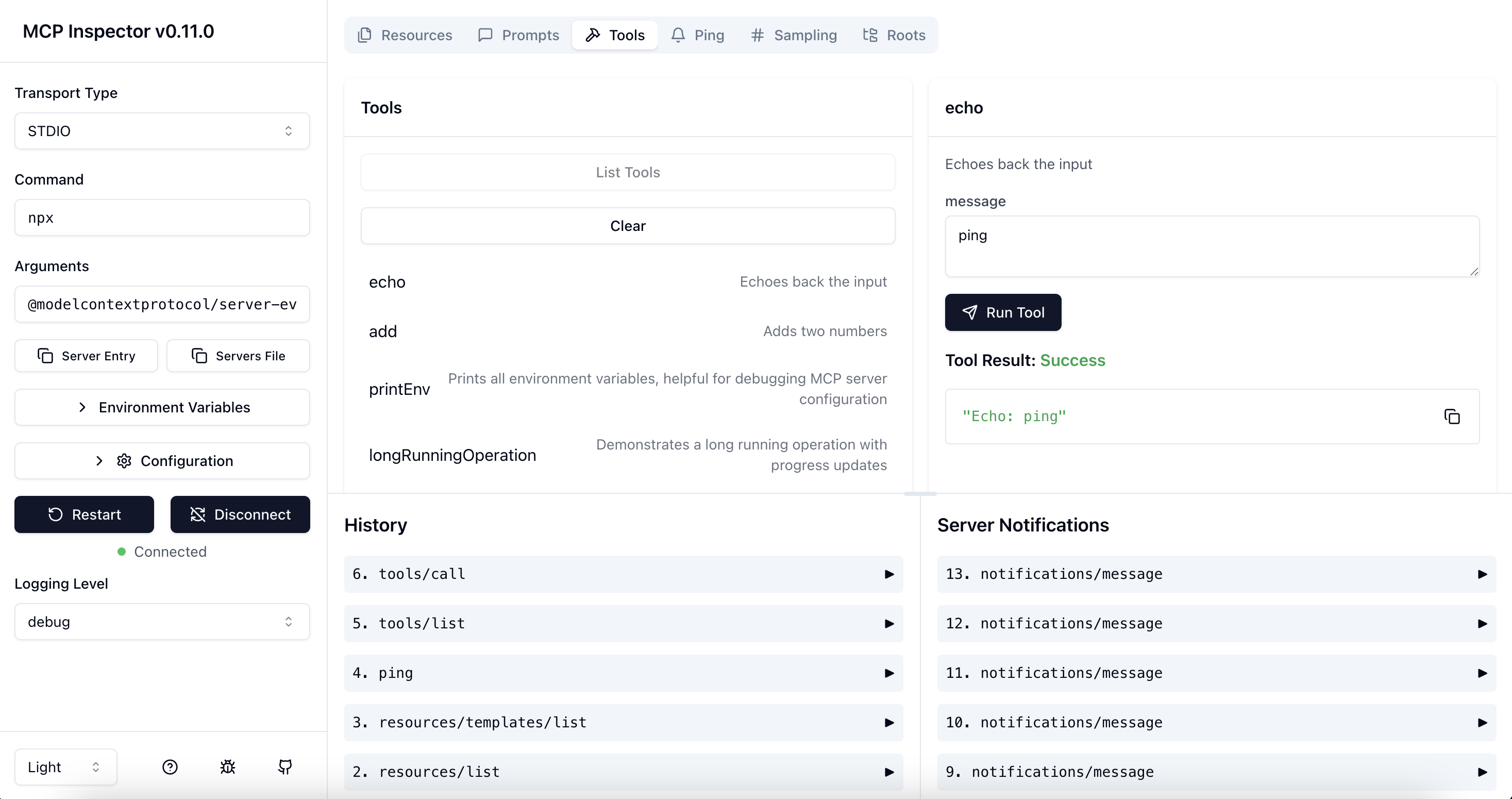Spaces:
Running
title: Defect Solver MCP
emoji: 🛠️
colorFrom: purple
colorTo: yellow
sdk: docker
pinned: false
short_description: Defect Solver - MCP Server
Defect Solver MCP Server
This project implements a Model Context Protocol (MCP) server for defect solver bug localization using FastMCP. It provides multiple bug localization tools that forward bug report data to remote endpoints for prediction and analysis.
Features
- Exposes three MCP tools for bug localization:
multi_module_bug_localization: Localizes bugs across the entire microservice architecturesingle_module_bug_localization: Localizes bugs within a specific modulesearch_space_routing: Identifies likely microservices (search spaces) for a reported bug
- Forwards issue data (key, summary, description, and optionally module) to configurable remote endpoints
- Returns predicted source code locations and detailed workflow prompts
- Uses async HTTP requests and robust error handling
- Includes workflow and prompt templates for end-to-end bug localization and resolution
Requirements
- Python >= 3.13
- See
pyproject.tomlfor dependencies:- fastmcp
- httpx
- loguru
- pydantic
- dotenv
- uv
Note: The tools implemented in this server require a DEFECT SOLVER API KEY to send requests. To get your key, please contact Lokum AI.
Setup
- Clone the repository:
git clone <your-repo-url> cd defect_solver_mcp_server - Install dependencies using uv:
uv sync - Configure environment variables:
- Copy
.env.exampleto.envand set the following as needed:DS_API_BASE_URLDS_API_MULTIMODULE_ENDPOINTDS_API_SINGLEMODULE_ENDPOINTDS_API_SEARCHSPACE_ENDPOINTHF_ACCESS_TOKEN(optional)TIMEOUT(optional)
- Copy
Usage
Run the MCP server:
python main.py
The server will start and expose the bug localization tools via MCP.
Available Tools
- multi_module_bug_localization: Use when the responsible microservice is unknown. Returns likely microservices and localized files.
- single_module_bug_localization: Use when the affected module is known. Returns localized files within the specified module.
- search_space_routing: Use to identify the most likely microservices (search spaces) for a reported bug.
Prompts & Workflow
The server provides prompt templates for:
- Tool selection and workflow planning
- Bug report augmentation
- Bug localization and result explanation
- Automated bug fixing and full resolution workflow
NOTE: There is a chatmode.md file personalized for DNext development that provides detailed instructions and rules on how to use the MCP server with chat-based interactions in IDEs like VSCode, Cursor, Windsurf and etc. Please refer to the dnext-chatmode.md for more information.
Configuration
- API base URL and endpoints are configured in
utils/config.pyand via environment variables:DS_API_BASE_URL,DS_API_MULTIMODULE_ENDPOINT,DS_API_SINGLEMODULE_ENDPOINT,DS_API_SEARCHSPACE_ENDPOINT
- Timeout and HuggingFace access token are also configurable.
MCP Inspector
The MCP Inspector is a tool to help you visualize and debug the interactions with the MCP server. To use the MCP Inspector, simply run the command below in your terminal:
npx @modelcontextprotocol/inspector
The GUI will open in your default web browser, allowing you to monitor the communication with the MCP server in real-time:

Project Structure
main.py # Entry point and MCP server with tool and prompt definitions
utils/config.py # API configuration and environment variable loading
utils/model.py # Pydantic models for request payloads
pyproject.toml # Project metadata and dependencies
README.md # Project documentation
.env.example # Example environment configuration
mcp.json Configuration Example for Client Usage
To use this MCP server in a client application that supports MCP, you add the config below to mcp.json.
PRIVATE MCP SERVER: This config is required for when deploying the MCP server in a private Hugging Face Space that requires authentication.
{
"servers": {
"ds": {
"url": "https://dnext-ds-mcp-server.hf.space/mcp/",
"type": "http",
"headers": {
"DS-API-Key": "${input:defect-solver-api-key}",
"Authorization": "Bearer ${input:hf-access-token}"
}
}
},
"inputs": [
{
"type": "promptString",
"id": "defect-solver-api-key",
"description": "Enter your Defect Solver API Key",
"password": true
},
{
"type": "promptString",
"id": "hf-access-token",
"description": "Enter your Hugging Face Access Token",
"password": true
}
]
}
PUBLIC MCP SERVER: For public spaces, you can omit the hf-access-token input or Authorization header.
{
"servers": {
"ds": {
"url": "https://dnext-ds-mcp-server.hf.space/mcp/",
"type": "http",
"headers": {
"DS-API-Key": "${input:defect-solver-api-key}"
}
}
},
"inputs": [
{
"type": "promptString",
"id": "defect-solver-api-key",
"description": "Enter your Defect Solver API Key",
"password": true
}
]
}